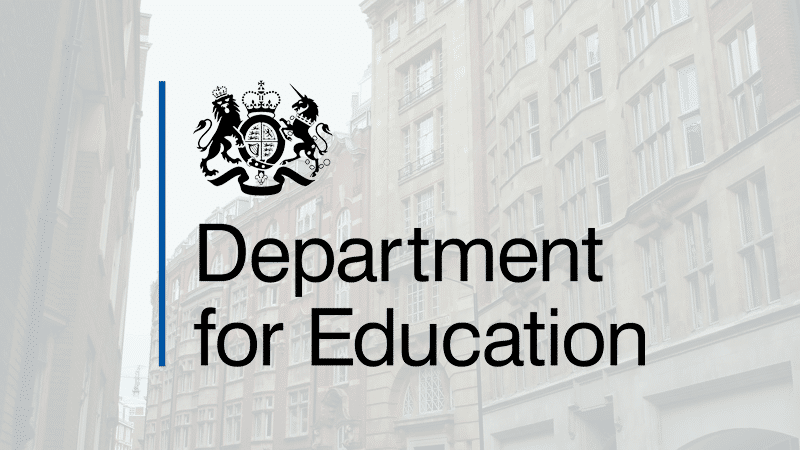This DFE equality assessment gives a fascinating insight into the Government’s attitude to religion

Equality impact assessments aren’t exactly page-turners, but the Department for Education’s recent one on Regulating Independent Educational Institutions was certainly enlightening — worryingly so.
Like all such assessments, it examines how people from different backgrounds would be affected by a particular proposal. In this case it is a plan to expand the definition of independent schools — a plan being brought in through the Schools Bill.
Now the Schools Bill itself is rife with problems. Part one sought to give the Department for Education enormous control over “virtually every aspect” of academy trusts in England. The House of Lords was so scathing in its criticism that the DFE has already agreed to (temporarily) drop clauses 1-18.
Part three has aroused the ire of home-schooling groups and parents for undermining the long-established principle that it is parents and not the state who are responsible for the education of their children. At the same time, the Government is opening the door to local authorities to demand intrusive information about home-educating families, for inclusion on their registers. If “such details as the means by which the child is being educated as may be prescribed” isn’t already wide enough, they’ve tagged on “any other information that may be prescribed”.The majority view was once that slavery was acceptable
Part four, meanwhile, replaces the existing definition of Independent Educational Institutions with one designed to draw many, many more bodies into the grasp of regulation.
Which brings us back to this equality assessment. Wanting to ensure children are receiving a proper education is a commendable aim. But a problem emerges when the Government says it is “not acceptable” for some children to attend schools which “isolate them from mainstream society” either “incidentally” or “as a deliberate rejection of that society’s values”.
Is the majority always right?
The implication here is that “isolation” breeds contempt for others and that the majority might ultimately be in danger from those who don’t hold to “society’s values”. In other words, those who do not hold certain accepted views might be extremists. So much for inclusion.
But who is to say that the majority view is always right? Little more than 200 years ago, the majority view in this country was that slavery was acceptable. Those fighting to end the slave trade were branded extremists. Holding a minority view does not necessarily mean you are wrong, and it certainly doesn’t mean you are dangerous.
The second problem with the language used is just how incredibly vague it is. Is there a definitive list somewhere detailing mainstream societal views? If there were, it would not last long as almost each and every point would likely be hotly debated.
The closest we have come was the similarly vague list of “British values” which is still being used as a yardstick by Ofsted to determine if a school is allowing children to harbour unpopular views.The majority view was once that slavery was acceptable
Schools are told that in addition to democracy and the rule of law, they must uphold the values of “individual liberty, mutual respect, and tolerance of those with different faiths and beliefs”.
Tolerance
If the Government is to respect individual liberty, surely individuals should be permitted to send their children to schools with the ethos and values of their choosing? After all, this very right is guaranteed by the First Protocol of the European Convention on Human Rights, to which the UK is a signatory. This holds:
In the exercise of any functions which it assumes in relation to education and to teaching, the State shall respect the right of parents to ensure such education and teaching is in conformity with their own religious and philosophical convictions.
What about respect and tolerance for those whose different faiths and beliefs lead them to question, challenge or reject the modern values of individualism, consumerism, secular humanism and sexual promiscuity? Will those who reject the notion that gender is “assigned at birth”, or that abortion is a human right, find respect and tolerance?
Judging by the recent level of vitriol directed towards Conservative MP Danny Kruger for acknowledging that an unborn baby is human, you can understand a degree of scepticism over whether the playing field of “respect and tolerance” is entirely level. Or ask any gender-critical feminist how much respect and tolerance she is in the habit of receiving when she states that it is impossible to change sex and that men should not compete in women’s sports.
Christians often hold views at odds with wider society. Does that make us extreme or dangerous?
When in 2017 the Government attempted to bring in Extremism Disruption Orders to tackle so-called “non-violent extremism”, ministers consistently failed to provide an adequate definition. Eventually they were forced to abandon the plans.
The Schools Bill is an opportunity to demonstrate they have learnt their lesson. Go and write it out a hundred times: I must not stigmatise those with less popular views.
This was first published on 9 July in The Critic and is reproduced here with permission.
